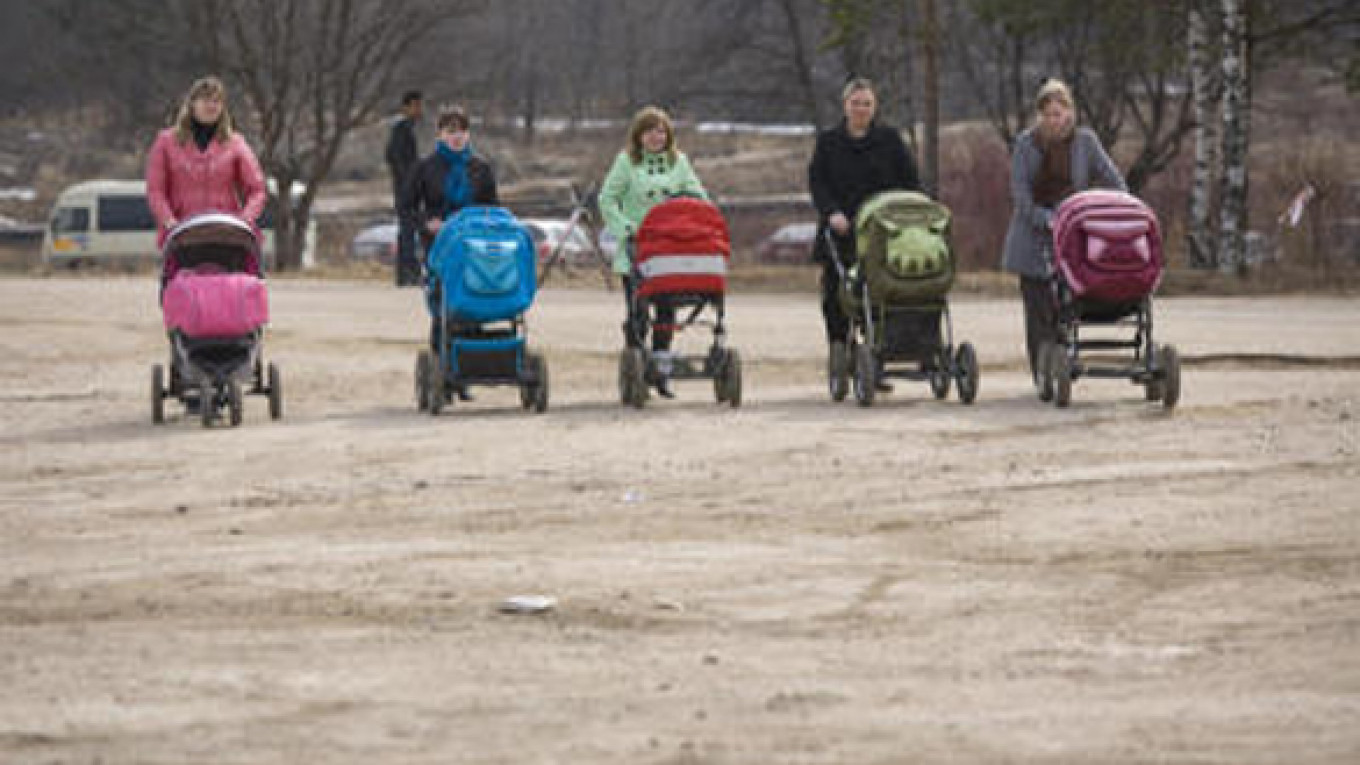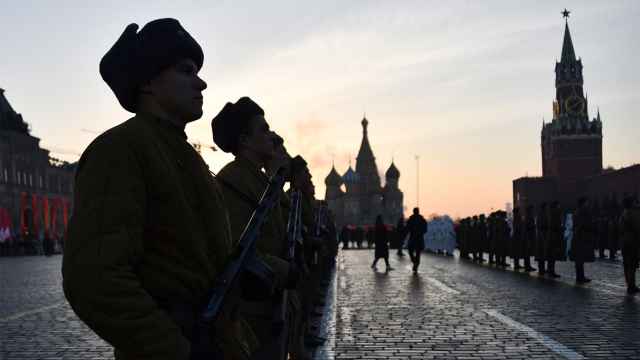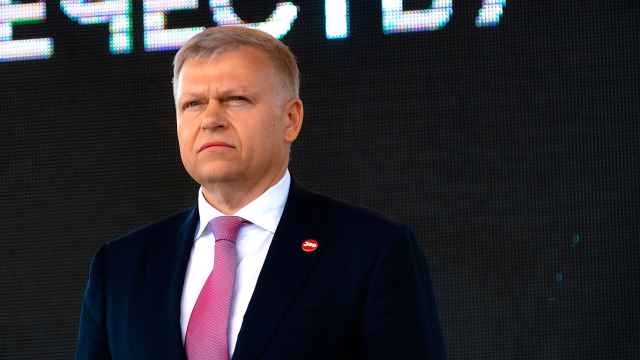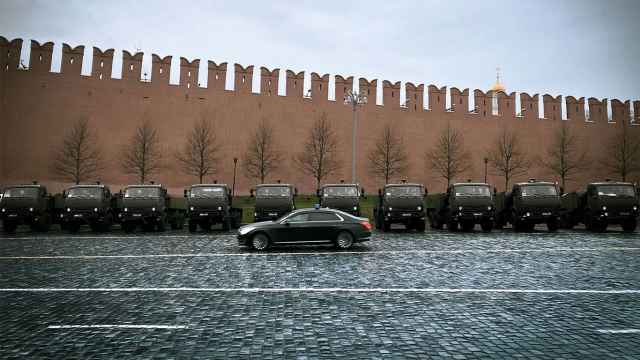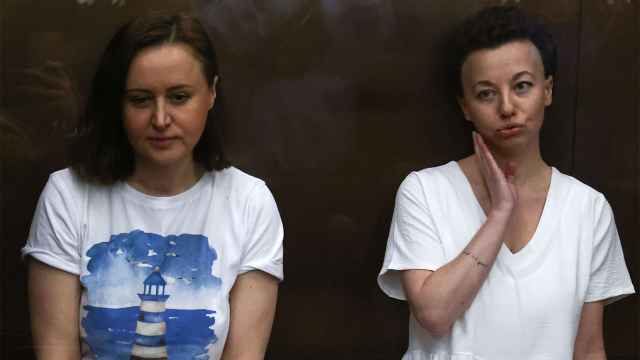Ten months after the government banned adoptions of Russian children by U.S. citizens, authorities say the number of children adopted domestically will more than double by this year's end amid increased state allowances.
Thanks to a range of government measures, the number of adopted children in the country will reach 15,000 by the end of 2013, Deputy Prime Minister Olga Golodets said Monday at the Column Hall of the House of Unions, an 18th-century mansion in front of the Kremlin. The figure shows a more than two-fold rise from earlier statistics of the Education and Science Ministry.
In addition, the amount of minors at Russian orphanages fell from 118,000 to 110,000 in the first six months of the year, Golodets said.
The luxurious venue of the three-day forum devoted to adoptions and families, which opened Monday and was organized with support from the Education and Science Ministry, hinted at the importance that federal authorities have attached to domestic adoptions since banning U.S. adoptions — a move that sparked widespread criticism and concerns for child welfare.
The U.S. was a leader in foreign adoptions of Russian children, taking a total of 60,000 in the past two decades, before U.S. adoptions were banned as of Jan. 1. Officially, the move was prompted by safety concerns after a string of abuse scandals and 20 deaths of Russian adoptees living with U.S. families, but it was widely seen to have political motives as well. Many believed it was a response to the U.S. Magnitsky Act, which imposed sanctions on Russian officials suspected of human rights abuses.
Domestic adoptions became a subject of national debate immediately following the ban on U.S. adoptions, with many critics of Russia's orphanage system demanding that authorities seek to reduce the number of children in state institutions and encourage domestic adoption.
It appears that authorities have heard their call, apparently pulling out all the stops to resolve the issue. They have increased the size of one-time payments for adoptive families, introduced regional allowances for low-income families, established monthly payments for families with many children and provided free land plots for families with many children for gardening and housing construction, according to information posted on the government website in July.
"In our country, the pace of placing children in families has grown significantly," Golodets told journalists outside the forum, which was attended by almost 1,000 adoptive parents.
According to the earlier estimates of the Education and Science Ministry, the number of children adopted domestically fell from about 9,000 in 2008 to some 6,600 last year, the ministry told State Duma Deputy Dmitry Gudkov, who cited the information on his LiveJournal blog in March.
Prime Minister Dmitry Medvedev, greeting the forum in absentia in a letter read out by Golodets, said that reducing the number of orphans, supporting families and protecting children were an "unconditional priority" of the state, adding that he expected the forum to attract the attention of the public to the issue of orphanhood and "offer new ways of solving it."
Medvedev also noted that the government was simplifying adoption procedures and raising allowances for adoptive families and guardians and that it would continue its work in this area, a letter posted on the government's website said.
Starting Jan. 1, the government will raise all types of allowances for families with children by 5 percent, which reflects the inflation rate, Labor and Social Protection Minister Maxim Topilin told the forum.
For this year alone, the government has allocated 40 billion rubles ($1.2 billion) to raise allowances for families with children, Golodets said on the sidelines of Monday's forum.
Apart from financial support, however, adoptive families are also in great need of consultations with experts on raising children and sharing experiences with one another, said Natalya Grodiskaya, head of Blagovest, a Penza region charity that helps orphans. Grodiskaya, herself an adoptive mother of seven, told the forum that the meeting provided a great platform for such discussion.
Currently, there are more than 420,000 adoptive and foster families in Russia, Education and Science Minister Dmitry Livanov told the gathering.
The government has also granted such families a number of benefits, including paying for utility services, public transportation, school lunches and visiting cultural and leisure facilities.
This year's government measures to support families with children were carried out in accordance with decrees from President Vladimir Putin in late December and April.
When assuming office in May 2012, Putin made boosting the country's population a key priority of his presidency, immediately ordering regional governors to begin issuing monthly allowances for families with three or more children, including adoptive families, and support working women with children.
Contact the author at n.krainova@imedia.ru
Related articles:


